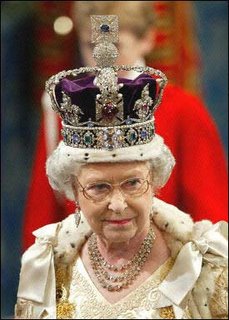 Lover of Empire
Lover of EmpireFrom F W Boreham’s first editorial for the Otago Daily Times, the subject of the British Empire was a constant theme throughout his editorial writings. Still expressing his fascination for the Empire in 1944, Boreham said, “Its history is, far and away, the most stately romance that has ever been written. There is nothing in legend or fable to compare with it”.[1]
Boreham’s annual editorial on Empire Day (celebrated in Australia on 24 May from 1905 to the late 1950s) gave him the chance to tell the story of Empire, to arouse readers’ appreciation and to stir aspirations about the Empire’s future. One can sense his deep feelings for the subject in the following words:
“We speak of the Empire, and, as those two glowing syllables fall from our lips, we discover that they throb with a magic peculiarly their own. They spread before the mind a broad canvas of vivid and variegated hues. These are words in our vocabulary that mean very much more than any dictionary would suggest. Such words represent fossilised poetry, petrified history, embalmed romances. All the ages have left the record of their tears and their laughter, their virtues and their vices, their passion and their pain in the words that they have coined. Among these archives of articulation no word is more rich in encrusted tradition and glittering association than the word that falls so musically and so majestically upon our ears on May 24.”[2]
British Uniqueness
Beyond sentiment, Boreham often expressed the uniqueness of the British Empire in its ability to “evoke deep-seated affection of heterogeneous citizens”.[3] It epitomized for him democracy at work as Great Britain brought together a united commonwealth of free and equal nations. Since the time that Empire Day had been established in Australia there was a minority who opposed the concept, including the editor of the Bulletin, who called it ‘Vampire Day’ and “the feast day of St Jingo”.[4] The vast majority of Australians who supported the commitment to the Empire recognised the strong ties of blood, language, history, culture and the practical link in trade.
Writing about the first Empire Day celebrations in 1905, Gavin Souter discerned that Australians had a dual perception, believing that “to praise the whole was automatically to praise the part” and not result in any diminution of the young nation.[5] Being part of the Empire also “conferred on Australians a role and significance in the world which they could not otherwise hope to attain”.[6] When some in 1914 were casting doubts on the viability and worth of the Empire, Boreham exclaimed, “To say that the British Empire has had its day is nonsense”.[7] Gibbon had taught him that what fostered the growing affection for the motherland was that in contrast to other empires that had “looted” new territories “like vampires”,[8] the British Empire had operated by the opposite principle. According to Boreham, Great Britain “has given of her best to her dependencies, and has, in the process, bound them to herself with hoops of steel”.[9] Boreham’s Empire was “not bound by red tape”[10] but by “deep affection” forged through “moral ties”.[11]
Contribution of Empire
Boreham recognized that the greatest contribution of the Empire was in its inculcation of values that had the potential to transform colonial cultures and penetrate even the remote parts of the commonwealth.[12] These values he identified as Britian’s integrity, justice, the championship of freedom, honesty in dealing with national rulers[13] and chivalry or gentlemanly spirit.[14] This attitude fostered an “attachment of people of the same stock, thinking the same thoughts, cherishing the same ideals”,[15] an approach that was vindicated, Boreham believed, in the affectionate way in which colonies regarded Great Britain. At its worst, this belief in British cultural superiority bolstered the country’s White Australia policy (1901) and with it discrimination towards Asians and aborigines.[16]
Empire During War
Imperial sympathy became most apparent during the struggle of international wars. During the Second World War, Boreham predicted the future role of the British Empire when he stated, “The guardianship of the world’s peace, must, after the war, become the supreme responsibility of the British people”.[17] Writing from Australia in 1949, Boreham said, “Never since English history began has so much affection and so much sympathy been felt for England on this side of the world”.[18]
Empire Excelling
Noting that explorers such as Captain Cook had been motivated by a love of empire, Boreham wrote that British and Australian conquests in exploration[19] and sport[20] were major peacetime methods of fostering the imperial spirit. To this end, Boreham expressed the hope in 1921, 1937 and 1947 that Mount Everest would be first climbed by a “British conqueror”[21] and writing about the link between citizenship and sport he stated, “Nothing is more to be desired than that the British peoples may continue to lead the world in the quality and the purity of their sport”.[22]
Resilience of British Throne
Boreham considered the British monarchy to be the heart and embodiment of the British Empire. His recognition in 1935 that the number of thrones that had been overturned within the lifetime of the current generation led him to conclude that “monarchy, as an abstract principle, is passing through difficult and trying days”.[23] The unique thing that explained the resilience of the British throne and the affection throughout the empire was, in Boreham’s estimation, the “personal excellence” of the monarch and the royal family. Boreham’s understanding of history led him to recall that when Queen Victoria commenced her reign there were calls for the throne to become vacant and obituaries were published announcing the death of the British monarchy. However, her influence raised the prestige of royalty and “the attractive life of Queen Victoria elevated the social conditions of the entire British people”.[24] Assessing Victoria’s personal influence Boreham continued, “She saved not only the Throne but the Empire itself”. In 1935, Boreham wrote that “King Edward and King George have splendidly maintained the shining tradition established by that noble lady” and that the interest of people in the Royal family augured well for the “happy state of things for many a long day to come”.[25] While Boreham’s descriptions of the royal visits were full of superlatives, more recent writers have detected little sign of the diminution of ‘royal worship’. Reading the accounts of the royal visits of 1920 and 1934-35, historian Michael Davie says they are written in “the tone … of breathless admiration and shameless sentimentality”.[26]
Cashing the Check
Boreham drew a distinction between the possession of the Empire and the creation of an imperial spirit, saying that such an inheritance needed to be cashed like a cheque.[27] He, therefore, encouraged the observation of Empire Day, Empire Youth Sunday, royal birthdays, anniversaries and royal visits as key occasions for expressing appreciation and arousing aspirations for the Empire and the monarchy. Boreham wrote about the importance of flags,[28] statues[29] and music[30] in awakening memories and stirring a reverential allegiance toward the monarchy.
Sway of the Crown
In writing about the changing role of the British monarchy, Boreham observed a gradual development of its influence and rule throughout the centuries. Despite the monarch’s decreasing involvement in the political processes of Britain and the Empire, in 1935 Boreham rejected Emerson’s simile about being “as impotent as a British monarch” saying “nothing was further from the truth”.[31] On the occasion of the visit of Queen Elizabeth II and Prince Philip to Tasmania in 1954, Boreham declared “that the sway of the Crown is today immensely more potent and more impressive than in the days when our sovereign assumed despotic and dictatorial prerogatives”.[32] Throughout his lifetime Boreham perceived an increase in affection between Australians and the royal family and regularly stated that “the Crown is never more popular than today”.[33]
Aussie Shifts
The shift in Australian’s relationship to the British Empire was apparent at the New South Wales Conference of the Labor Party in 1931 when the Education Committee recommended that Empire Day no longer be observed in the schools of NSW, the weekly ceremony of flag saluting be discontinued and the Imperialist bias be removed from school textbooks.[34] Although the acquisition of new territories in the first part of the twentieth century was slower than in the second half of the nineteenth century, Boreham did not concede that the British Empire was in decline.
Declining Empire
When after the Second World War there was a redefinition of the status of Britain’s dominions, a disintegration of a common foreign policy within the Commonwealth and independence declared by India, Ceylon and Burma, Boreham did not interpret these events as an erosion of British influence. In the 1950s, the rush towards independence by the many remaining British colonies in Africa, Asia, the Caribbean and the Mediterranean coincided with the conclusion of Boreham’s editorial career. He neither discussed these issues nor reported on a waning of the imperial spirit. One would suspect that Boreham found it hard to accept that the British Empire was in decline.
Geoff Pound
Image: 'Sway of the crown...'
[1] Boreham, Mercury, 2 September 1944.
[2] Boreham, Mercury, 20 May 1944; Age, 24 May 1947.
[3] Boreham, Mercury, 24 May 1952.
[4] A G Stephens, ‘Empire Day’, Bulletin, 18 May 1905.
[5] Gavin Souter, Lion and kangaroo: The initiation of Australia, rev. ed. (Melbourne: The Text Publishing Company, 2000), 129.
[6] Souter, Lion and kangaroo, 3.
[7] Boreham, Mercury, 17 February 1914.
[8] Boreham, Mercury, 21 May 1921.
[9] Boreham, Mercury, 20 May 1944; Age, 24 May 1947.
[10] Boreham, Mercury, 20 May 1916.
[11] Boreham, Mercury, 19 September 1914.
[12] Boreham, Mercury, 20 February 1954.
[13] Boreham, Mercury, 19 September 1914.
[14] Boreham, Mercury, 30 June 1928.
[15] Boreham, Mercury, 19 May 1928.
[16] Notions of citizenship were formed on the view of Australians as being British subjects. Asians and aborigines were excluded from voting by the 1901 constitution and excluded from the 1903 Naturalisation Act.
[17] Boreham, Mercury, 20 May 1944.
[18] Boreham, Mercury, 23 April 1949.
[19] Boreham, Mercury, 12 March 1921.
[20] Boreham, Mercury, 4 November 1919.
[21] Boreham, Mercury, 12 March 1921; Mercury, 5 November 1938; Age, 1 November 1947.
[22] Boreham, Mercury, 4 November 1919.
[23] Boreham, Mercury, 11 May 1935.
[24] Boreham, Mercury, 19 June 1937.
[25] Boreham, Mercury, 11 May 1935.
[26] Michael Davie, Anglo-Australian attitudes (London: Secker & Warburg, 2000), 92-93.
[27] Boreham, Mercury, 20 May 1916.
[28] Boreham, Mercury, 21 May 1921.
[29] Boreham, Mercury, 14 May 1921.
[30] Boreham, Mercury, 7 December 1940; Age, 17 May 1947.
[31] Boreham, Mercury, 4 May 1935.
[32] Boreham, Mercury, 20 February 1954.
[33] Boreham, Mercury, 2 June 1928; Mercury, 11 May 1935.
[34] Clark, A history of Australia vol. vi, 373; Sydney Morning Herald, 4, 6, 7 April 1931.

 Observer of Days
Observer of Days
 This is the ninth and final instalment in a series by F W Boreham from his essay The Long Arm of Coin-cidence, soon to be included in the forth-coming book,
This is the ninth and final instalment in a series by F W Boreham from his essay The Long Arm of Coin-cidence, soon to be included in the forth-coming book, 
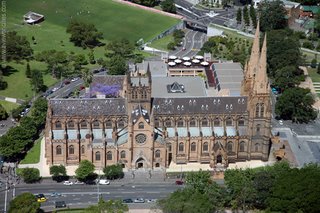 This is the seventh in a series by F W Boreham from his essay The Long Arm of Coin-cidence, soon to be included in the forth-coming book,
This is the seventh in a series by F W Boreham from his essay The Long Arm of Coin-cidence, soon to be included in the forth-coming book,  This is the sixth in a series by F W Boreham from his essay The Long Arm of Coincidence, soon to be included in the forthcoming book,
This is the sixth in a series by F W Boreham from his essay The Long Arm of Coincidence, soon to be included in the forthcoming book,  This is the fifth in a series by F W Boreham from his essay The Long Arm of Coincidence, soon to be included in the forthcoming book,
This is the fifth in a series by F W Boreham from his essay The Long Arm of Coincidence, soon to be included in the forthcoming book, 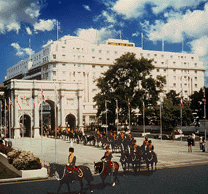 This is the fourth in a series by F W Boreham from his essay The Long Arm of Coincidence, soon to be included in the forthcoming book,
This is the fourth in a series by F W Boreham from his essay The Long Arm of Coincidence, soon to be included in the forthcoming book,  This is the third in a series by F W Boreham from his essay The Long Arm of Coincid-ence, soon to be included in the forthcoming book,
This is the third in a series by F W Boreham from his essay The Long Arm of Coincid-ence, soon to be included in the forthcoming book,  This is the second in a series of instalments by F W Boreham from his essay, 'The Long Arm of Coincidence', soon to be included in the forthcoming book,
This is the second in a series of instalments by F W Boreham from his essay, 'The Long Arm of Coincidence', soon to be included in the forthcoming book, 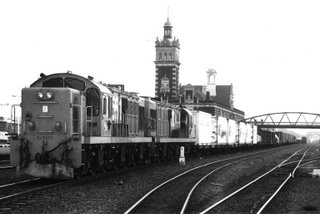

 What's the Point of the Church?
What's the Point of the Church?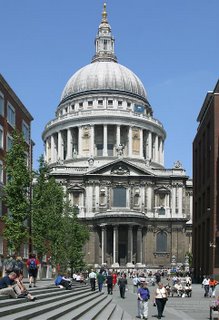 Eloquent Stones
Eloquent Stones
